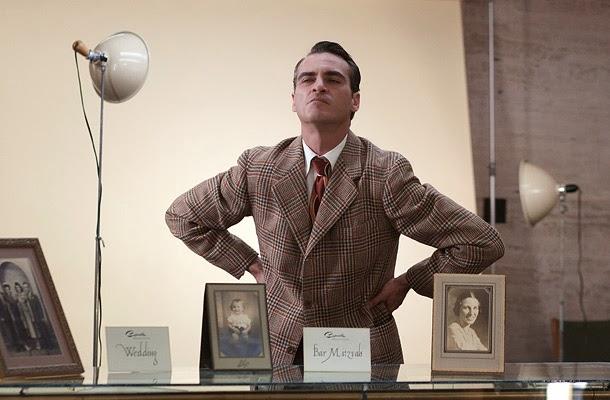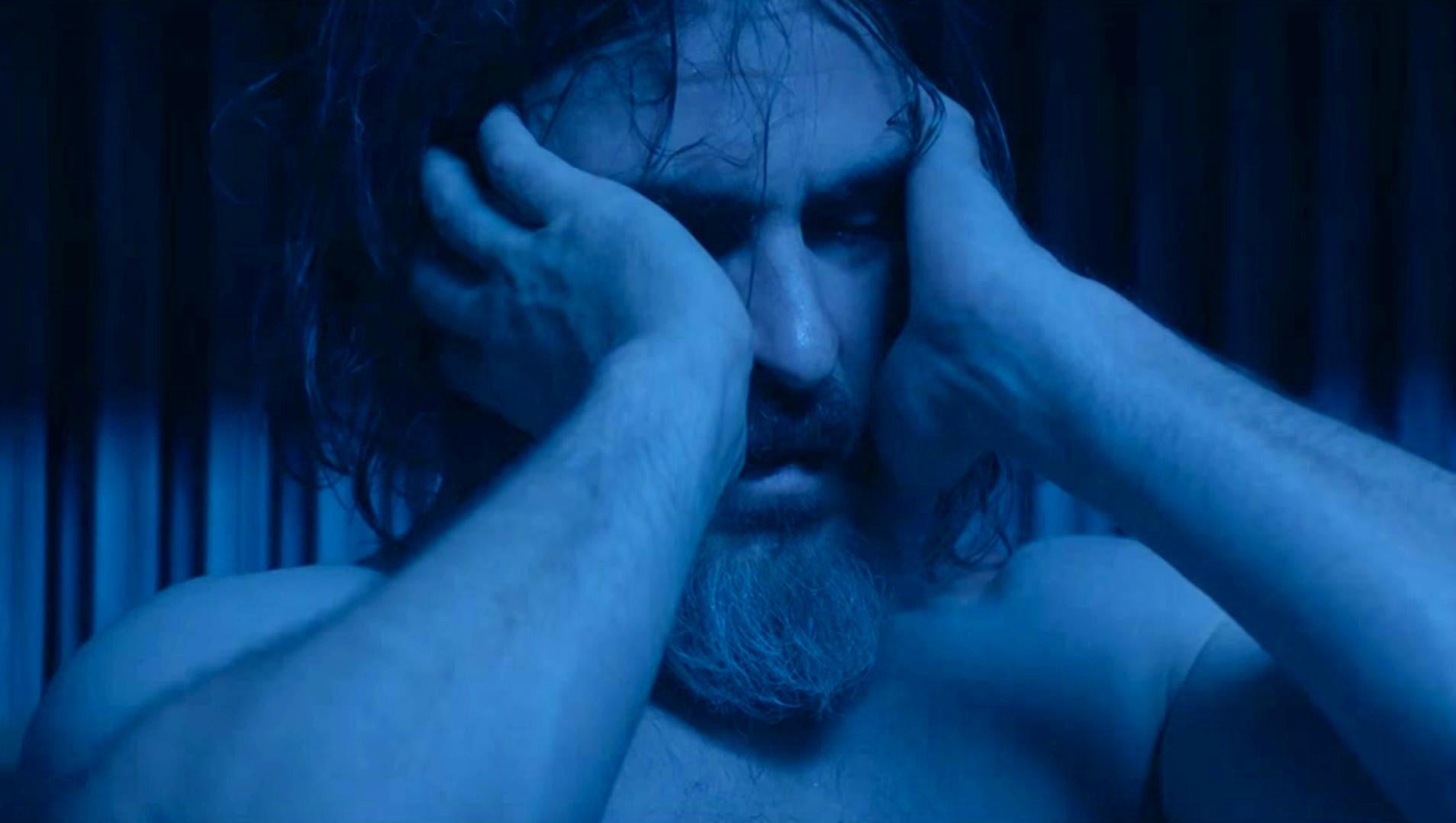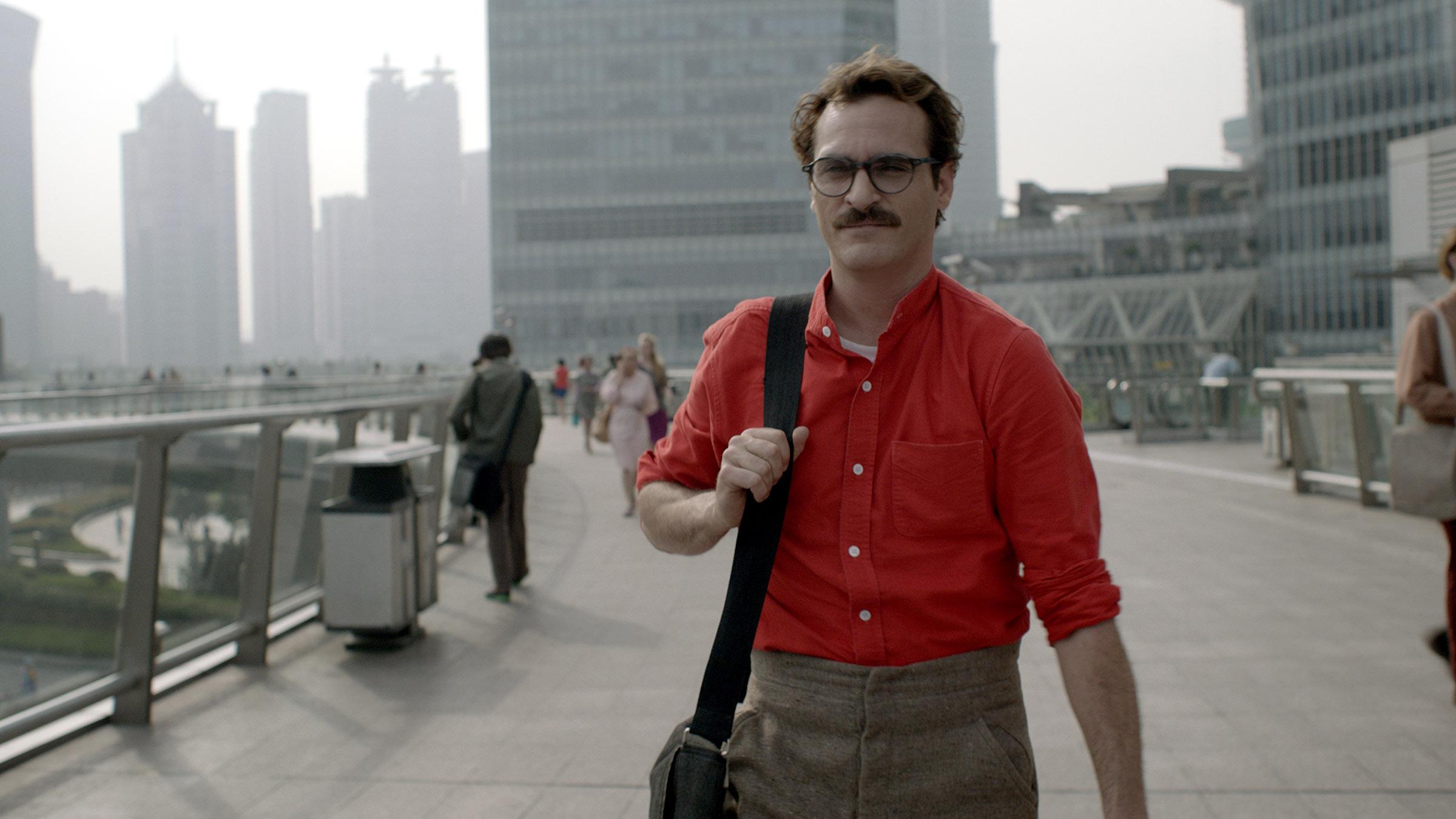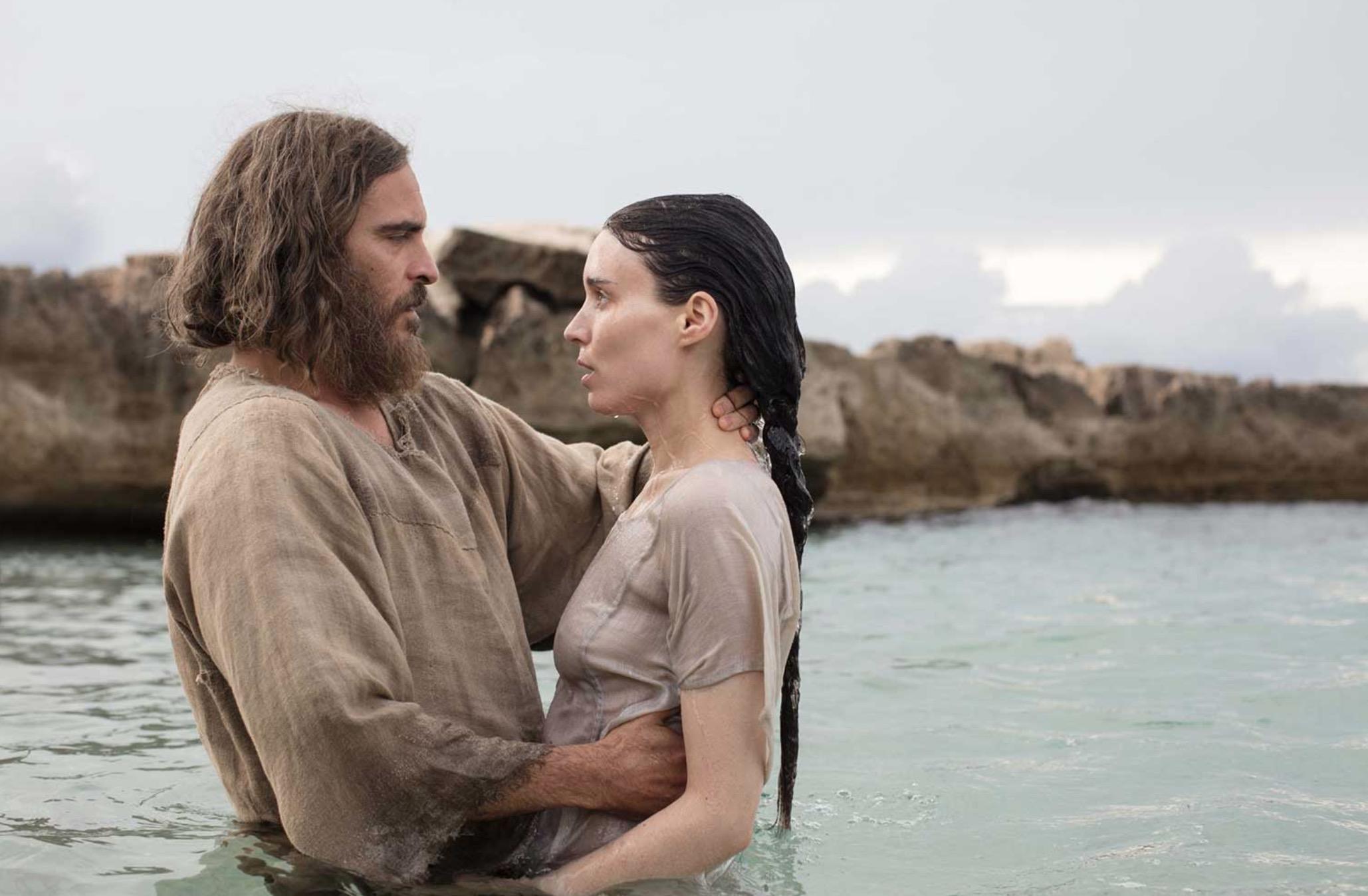Joaquin Phoenix is not cut out for this
The actor is in the wrong business for all the right reasons. Christopher Hooton sat down with him to talk about doing interviews, drama, dogs and his new film, ‘Mary Magdalene’.

“Amazing.”
“Yeah?”
“Yeah. Why do you seem so surprised?”
Joaquin Phoenix lights another cigarette and stares out the window of the hotel suite, where snow is falling but disappearing before it reaches the ground. He doesn’t strike me as a very still person anyway, but is particularly restless when asked about himself, or to be more specific here, how’s he doing, in a macro, life-appraisal sense.
I don’t have an answer to his defensive counter-question, and maybe I’ve just been hoodwinked by his acting, which has such ferocity and vulnerability that you can’t help but assume there is a troubled soul informing it. Phoenix is in good spirits when I meet him, though, in spite of the fact that interviewing him feels akin to taking him hostage. He doesn’t speak in public often and cancelled a few interviews he was supposed to do the previous day at the last minute.
I know these situations aren’t necessarily the most comfortable for you, I tell him, if it makes you feel any better I’m not exactly the most comfortable interviewer either.
“Well, it depends,” he says, “I don’t mind one-on-ones occasionally, or round-tables where there’s a discussion. It’s the TV stuff I struggle with where it’s just soundbites – I fucking hate that, and press conferences where you’re up on a stage and people are down there constantly taking pictures, it’s fucking awkward.”
It’s not the awkwardness Phoenix fears in these scenarios however; quite the opposite.
“I don’t really want it to not feel awkward. I don’t ever really wanna be comfortable up on that stage.”

It’s this unwillingness to indulge the celebrity forced upon him, much less maintain a social media presence or take part in viral SNL skits like actors are expected to these days, that has made Phoenix something of an enigma in the industry. It might be tempting to read his public disengagement as some kind of arrogance, but talking to him it’s clear he just doesn’t have that ebullient, I’m-just-pleased-to-be-here Hollywood facade in him, something it’s perhaps strange that we’re suspicious rather than appreciative of.
“It’s just, I’m not a career actor,” he says. “There are some people who do that stuff and they do it often, whereas I’ll take breaks from working and my life is just normal, and I’m growing fucking vegetables in my garden.”
This will hopefully be a less contentious public mention of vegetables for Phoenix than last time, when he proffered a mildly surrealist metaphor of the Oscars as “a carrot, but the worst-tasting carrot you’ve ever tasted in your whole life”, which led to him reportedly being sidelined for an awards season push, forced to backtrack on the comment and confess that it made him “sound like a dick”; all of this, of course, only serving to confirm his suspicion that speaking often in public may not be the best career, nor life, choice.
Squirrelled away in a nook atop the Hollywood Hills, Phoenix lives a “pretty normal life” unhounded by paparazzi, so for him, stepping off a plane to a ton of flashbulbs (the modern kind may be silent but are no less confrontational) before being shepherded into a hotel ballroom to sit, The Last Supper-esque, in front of rows of international press is a “wildly different experience” and a bewildering one.
He asks me if I ever have to do press conferences and I confess that I’ve been to a couple but have never asked a single question at one given how peculiar and palpably awkward they are (reader, I wish I could convey this properly and can only refer you to certain scenes in Sofia Coppola’s Somewhere and Lost in Translation). Phoenix actually got a “legitimate question” that he “wishes he could have answered properly” during one on this trip but he choked. “There’s something about hearing your voice over a microphone. It just lacks intimacy, it doesn’t feel like a conversation.”

Amplified or not, his voice is an unmistakable one. With a slacker-y cadence and slightly hoarse, faltering timbre, it’s more befitting of a cult leader than a leading man, and his appearance is also pretty un-Hollywood, Phoenix today wearing a scruffy black jumper, black jeans, Converse and goofy white socks with pirates and hearts on them, an unplugged set of entry-level iPhone earphones thrown around his neck like a noose.
He’s into music, has directed a handful of music videos and once hooked Kanye West up with a beat for a project. Listing the reasons he has to be happy after my apparent surprise at his buoyant mental state – healthy family, fulfilling movie projects – he drops in a highlight of this trip to Europe, meeting Kendrick Lamar.
I bite, with an unscripted “oh man!”, and Phoenix is delighted that I appreciate the significance of this “magical” moment. “Kendrick Lamar is a magical human being,” I offer. Phoenix becomes animated and for someone not concerned with celebrity seems to have been significantly jazzed when on the other side of it.
“I’m telling you dude, it was like – me and my nephew were walking through the Louvre, we were actually on our way out, and he goes, ‘Kendrick is here’, and I was like, ‘Don’t fuck with me!’ He said, ‘No, Kendrick’s here’, I turned around and it really was him. I walked up and he just, like, exudes something... Beautiful, he’s beautiful.”
The masters of their respective disciplines only briefly, instinctively said hello, Phoenix being reflexively conscious that he “didn’t wanna keep him there talking to me so I could ask about his music and shit”. Elated though we are to fanboy out over Lamar, our conversation’s sojourn into hip-hop leads me down a wrong turn with Phoenix.
“I wanted to ask you about I’m Still Here because I fucking love that mov-” I start. “I’m done! I’m done with I’m Still Here, it’s like–” Phoenix says, before catching himself being a little petulant. “Thank you so much for saying that and we can talk about it briefly, but yeah, I have talked about that movie more than any other movie that I’ve made.”
My interest is in how Phoenix feels about having given over so much time and so much life to the mockumentary, which saw him pretend to feign a public breakdown and simultaneous foray into rap music over many months, only for critics to be disappointed rather than impressed when they discovered he’d been “faking” it. I think there’s still much to be written about this masterpiece, in which Phoenix made his real life – which we’ve already established he values the privacy and sanctity of greatly – essentially a film role, an act of performance art, but I was naive to think he would be in any way concerned by other people’s response to one of his films, which he generally doesn’t even watch.
“Yes, it was a lot of time invested but you learn to value the experience of making the movie versus how people react to the movie,” he insists. “And so if people react to the movie in a positive way and they like it you go, ‘Oh cool, maybe that’ll give me an opportunity to make another one’, but it’s not really going to define the experience.”
Something Phoenix is much more happy to talk about is his dogs. He has two rescues, and it occurs to me that a rescue dog might be a nice descriptor for his acting, the men he plays often looking tough and remotely dangerous but possessing a sadness and humility. One of his dogs, who he charmingly refers to as his “girl”, greets him in the morning by leaping up onto the bed, standing over him and licking his face, just delighted that his master is awake.
“My favourite thing is just when they’re out exploring on their own,” he says. “I’ll creep around the house and just watch them, wondering like, ‘What is their little internal life? What are the things they’re after?’” It’s probably not a coincidence that these animals that he so loves are incapable of viewing him as a celebrity.
Happy though as he may be living a quotidian home life, Phoenix was anxious to get back to work after taking two years off, and this year will star in four films, a career first. “I didn’t think I’d be able to do it,” he says of the punishing shooting schedule, which saw little downtime. Mary Magdalene was first off, appropriate for his messianic return to cinema as he plays Jesus Christ, with Lynne Ramsay’s excellent revenge thriller You Were Never Really Here, a biopic on quadriplegic cartoonist John Callahan called Don’t Worry, He Won’t Get Far On Foot and Western dark comedy The Sisters Brothers following. The eclectic nature of these projects got him through, all of which met the stringent vetting process of an actor so revered he must be offered pretty much every role going.

“I’m really specific and careful about the movies I choose to do. I don’t ever wanna feel like I have a job that I have to do, I wanna wake up and want to get to set early because I’m excited to dig into the work.”
Phoenix clearly loves acting and loves to talk about it. He seems drawn to roles that involve feeling for the edges of the emotional plane, but is reluctant to get too philosophical or self-serious about what he finds there. “I don’t know if it’s cathartic but it’s definitely a rush for me."
We’ve both displayed a fondness for swearing and by this point seem to have geed each other up. “Part of it is just like – it’s fuckin’ drama right, it’s like if you’re watching sport you want to see people fucking struggling and fuckin’ scoring a fucking goal and putting everything they have into it. When I do a movie it’s like what I imagine the feeling is for someone playing in the finals of the NBA or whatever. It’s those moments where you have to give everything and find that last bit of strength and energy you need to succeed. So I love films that give you the opportunity to do that.

“No matter what, drama is about conflict. It’s about these intense, heightened moments of our existence, right? So I certainly am not attracted to things that just seem like ‘Oh, that’s a cool movie’, I want to do things that make me have very strong feelings.”
Mary Magdalene certainly seems to have done this for Phoenix, it leading to a relationship with the film’s lead, Rooney Mara.
And but so the films he picks are always about the role? The director’s rep and filmography alone aren’t enough to get his signature (as many actors say of their choices)?
“It’s both things. There are times when I’ve really liked a script and a character but I didn’t want to work with a filmmaker, I didn’t think they were going to help me find or uncover something new, and there are times when I’ve really liked the filmmaker but I didn’t like the character, so I think all those things have to come together for me.”

Coming off the back of You Were Never Really Here, in which he plays a monolith of a man – the type of physique where excess fat obscures the muscles but you can still tell that he could have your head doing 800rpm on your neck if he punched it – Phoenix was put on a “brutal” 300-calories-a-day for Mary Magdalene so as not to portray the first swole Jesus, and this was in Sicily, “where you just wanna roll out and eat some good pasta and have a glass of wine”.
He got down to Biblically emaciated in time for production and gave another consummate performance, the film ruminating a-religiously on the nature of faith in a similar way to Martin Scorsese’s Silence. The film, which, true to form, he hasn’t seen, afforded him more of the moments he seems to be searching for in his line of work, where director and actor are working in complete harmony, where creativity is unbridled and and everything operates on feel. For want of a less prosaic term, it’s about being in the zone.
“There’s just no one like him,” he says of Mary Magdalene director Garth Davis. “There’s such a sensitivity and consideration and appreciation for what everybody does, he reveres acting or at least he makes you feel that way, and so he’s super-perceptive.
“I remember we were doing this scene where I’m talking to Judas who’s saying, ‘Bring about the Kingdom now’, and he leaves and Mary comes in and washes Jesus’ feet. We were breaking it up into two different scenes for shooting, just me and Judas first – we were gonna get that and then Mary was gonna come in later.
“Then on this one take, for whatever reason I just really felt Tahar’s [Rahim, Judas] performance, I was really caught up in the moment, and when he left I turned and I wanted Mary to just come in so bad. So I sat there and immediately I heard, off-camera, Garth whispering, ‘Go to him Mary, go to him,’ and she came in and we just kept running and played the scene out.
“Garth could sense that I was feeling something and wanted to move it forward, and when you work with a filmmaker like that it’s a joy to be on set, you feel like you’re in good hands and it’s inspiring.”

It might be something to do with the fact that Phoenix checks out his films once principal photography has wrapped and isn’t there for all the good stuff and the plaudits and analysis, but he doesn’t seem to know how good he is.
“Do you think about your body of work, what you’ll leave behind, or are you more in the moment than that?” I ask him.
He laughs, possibly because the question implies a grandiosity that’s anathema to him, possibly because he’s just been forced to consider his own mortality.
“I don’t think about that, if I did I would just be embarrassed. No, I don’t.” He pauses, “You’re making me think about it now.”
I feel bad and suggest it’s probably not a healthy way to think anyhow.
“Yeah, it’s probably also just that it would be a sign of age. I think in some sense I’m just trying to – I still feel like I haven’t done it, I still feel like – ”
“Everything’s ahead of you?”
“Hopefully! I’m pursuing it, I just feel like I haven’t done anything yet that I could sit back and go like, ‘Alright, I did that.’ I still feel like I haven’t done anything yet, but I’m gonna try.”
Mary Magdalene opens in UK cinemas 16 March.
Join our commenting forum
Join thought-provoking conversations, follow other Independent readers and see their replies
Comments
Bookmark popover
Removed from bookmarks